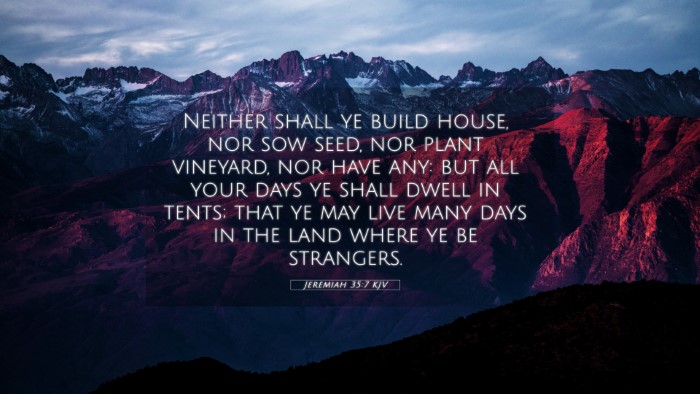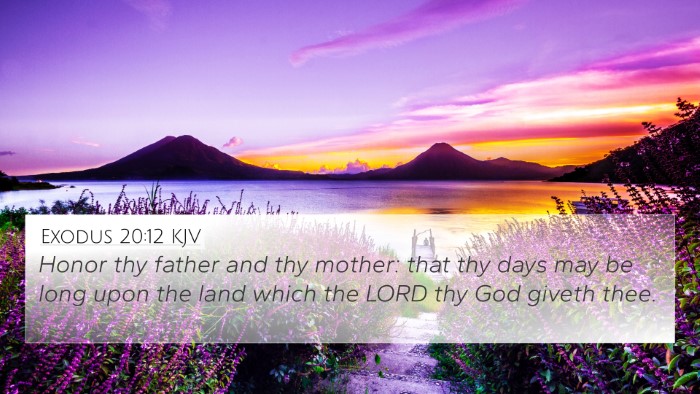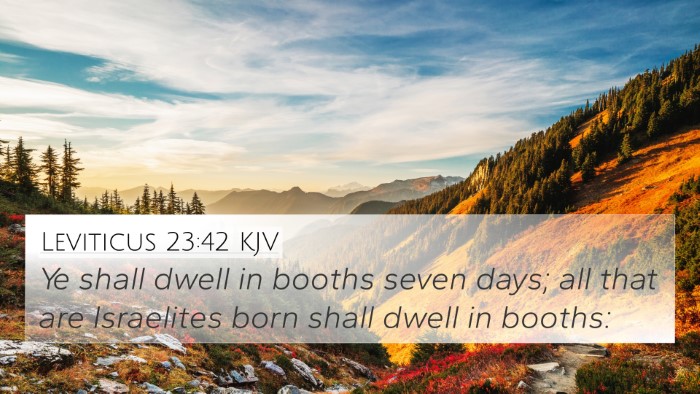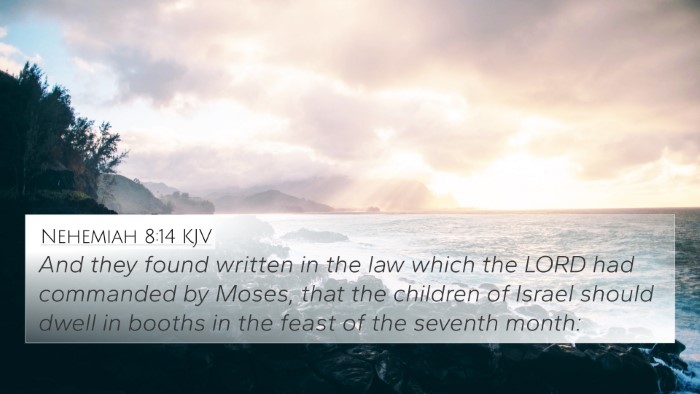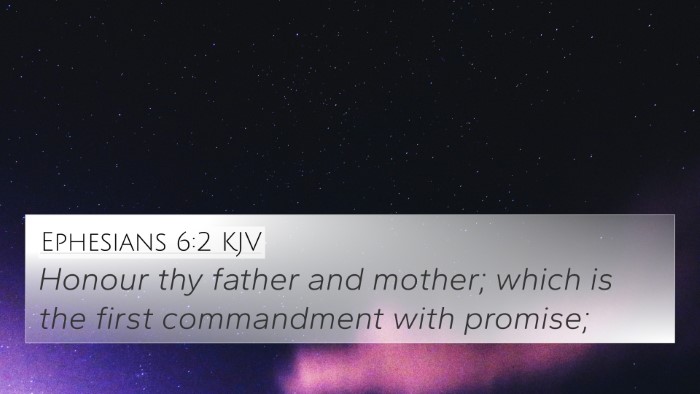Jeremiah 35:7 Interpretation and Insights
Bible Verse: Jeremiah 35:7 - "Neither shall ye build house, nor sow seed, nor plant vineyard, nor have any: but all your days ye shall dwell in tents, that ye may live many days in the land where ye be strangers."
Understanding the Context of Jeremiah 35:7
This verse is part of the narrative concerning the Rechabites, a nomadic tribe who followed the instructions of their forefather, Jonadab. They were distinct for their commitment to living as pilgrims, avoiding settled life, and hence their connection to tents.
- Historical Background: The Rechabites were related to the Kenites, who were closely connected to Israel. Their lifestyle was a deliberate choice, representing separation from the corrupt practices of the Israelites during Jeremiah's time.
- Covenantal Integrity: The Rechabites were rewarded for their faithfulness and adherence to Jonadab's commands by God, showcasing the value of obedience and the blessings that follow.
- Prophetic Call: The context shows a stark contrast between the people of Israel who had turned away from God's commands and the Rechabites who displayed fidelity to their traditions.
Insights from Commentary Sources
This analysis compiles insights from various public domain commentaries:
Matthew Henry
Matthew Henry emphasizes that the Rechabites' lifestyle serves as a lesson to the Israelites about the importance of obedience to divine guidance. Their decision to live in tents illustrates a form of holy separation that encourages believers to avoid the spirit of the age and maintain fidelity to God's Word.
Albert Barnes
Albert Barnes remarks on the Rechabites' commitment and the significance of their choice to eschew agricultural life, which can be understood both literally and spiritually. He points to the notion of endurance and perseverance amidst a corrupt society, noting that their way of life was divinely aligned with their calling.
Adam Clarke
Adam Clarke adds that the Rechabites' adherence to their traditions demonstrates a faith that transcends cultural norms. He stresses the contrast between their lifestyle and that of the Israelites, highlighting the spiritual ramifications of their choices before God.
Bible Verse Cross-References
Understanding Jeremiah 35:7 benefits from cross-referencing with other biblical passages which illustrate similar themes of obedience, faithfulness, and God’s providence. Here are several important connections:
- Hebrews 11:9-10: This passage discusses faith as shown by the patriarchs who lived as strangers on earth, drawing parallels to the Rechabites' nomadic existence.
- 1 Peter 2:11: Believers are described as pilgrims and strangers on earth, which echoes the sentiments found in Jeremiah 35:7 regarding living as sojourners.
- Jeremiah 9:5: This verse highlights the deceitful nature of the people of Israel, contrasting their behavior with that of the loyal Rechabites.
- Luke 9:58: Christ’s reference to having no place to rest echoes the commitment of the Rechabites to a transient lifestyle.
- Exodus 20:12: The commandment to honor one's father and mother reflects the Rechabites' fidelity to their forefather's commands.
- Isaiah 57:15: God promises to dwell with those who are contrite and humble, akin to the humility seen in the Rechabites.
- 2 Corinthians 5:1: The concept of earthly tents and eternal dwellings is a theological reflection that resonates with the Rechabite commitment to temporary living.
Thematic Bible Verse Connections
Several thematic connections can be drawn from Jeremiah 35:7, particularly around faithfulness, separation, and obedience to God's commands.
- Obedience to Tradition: The Rechabites represent adherence to family and spiritual tradition, which can also be seen in Proverbs 1:8 and Proverbs 22:6, where a father's instruction is valued.
- Nomadic Living: The theme of living in tents is prevalent throughout the Bible, including Genesis 12:8 where Abraham lived a nomadic life, symbolizing faith and reliance on God.
- Separation from Worldly Practices: Several verses in the New Testament, such as Romans 12:2, encourage believers to not conform to this world, echoing the Rechabites' refusal to adopt the lifestyle of their contemporaries.
Conclusion
Jeremiah 35:7 serves as a profound reminder of the value of obedience to God, the importance of heritage, and the call to live as pilgrims in this world. Through the example of the Rechabites, believers are encouraged to uphold their convictions and remain steadfast in their faith, regardless of external pressures.
For those engaging in in-depth Bible study, understanding such connections paves the way for a more comprehensive appreciation of Scripture, highlighting tools for cross-referencing and engaging with the themes that unite both the Old and New Testaments.

